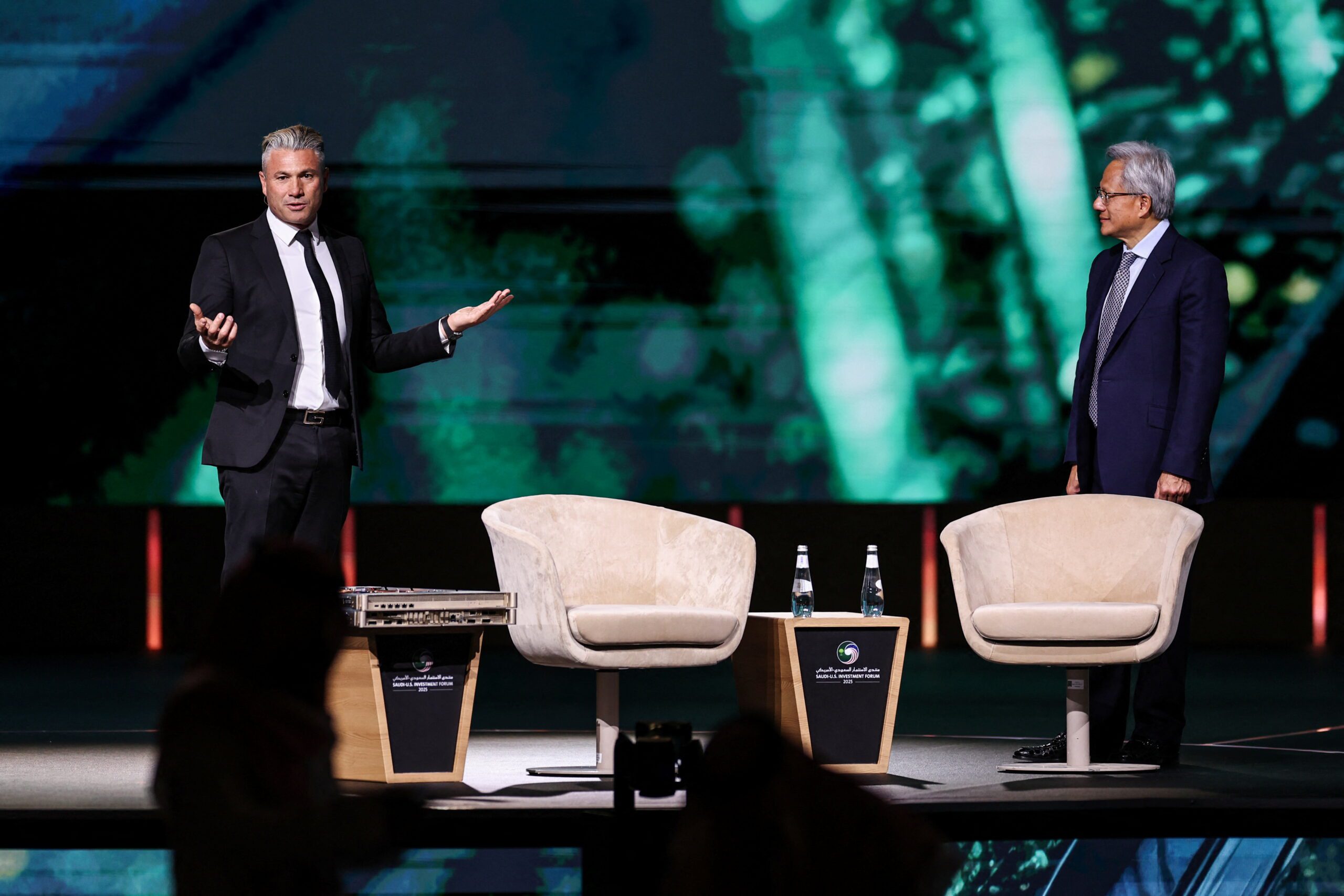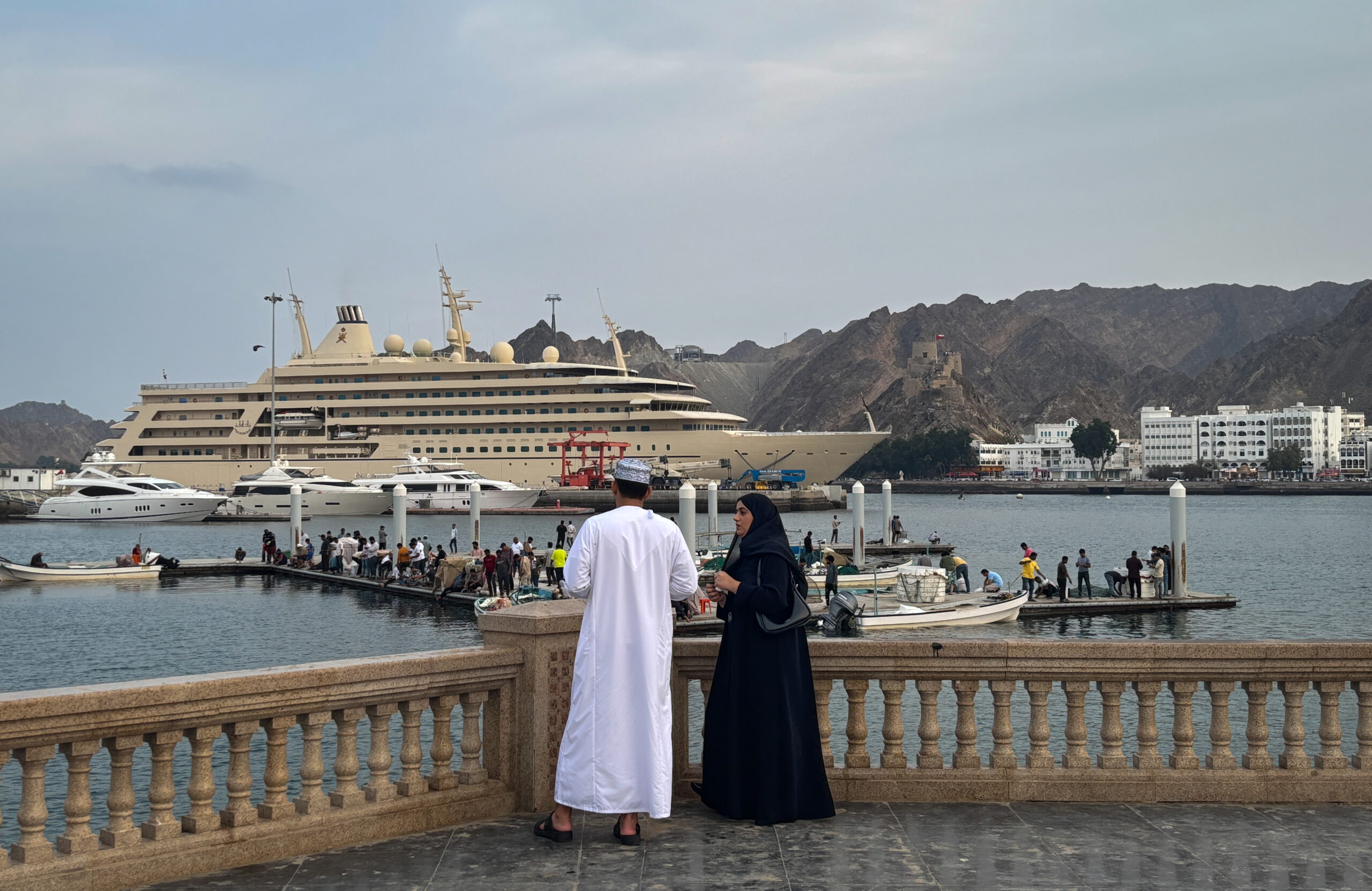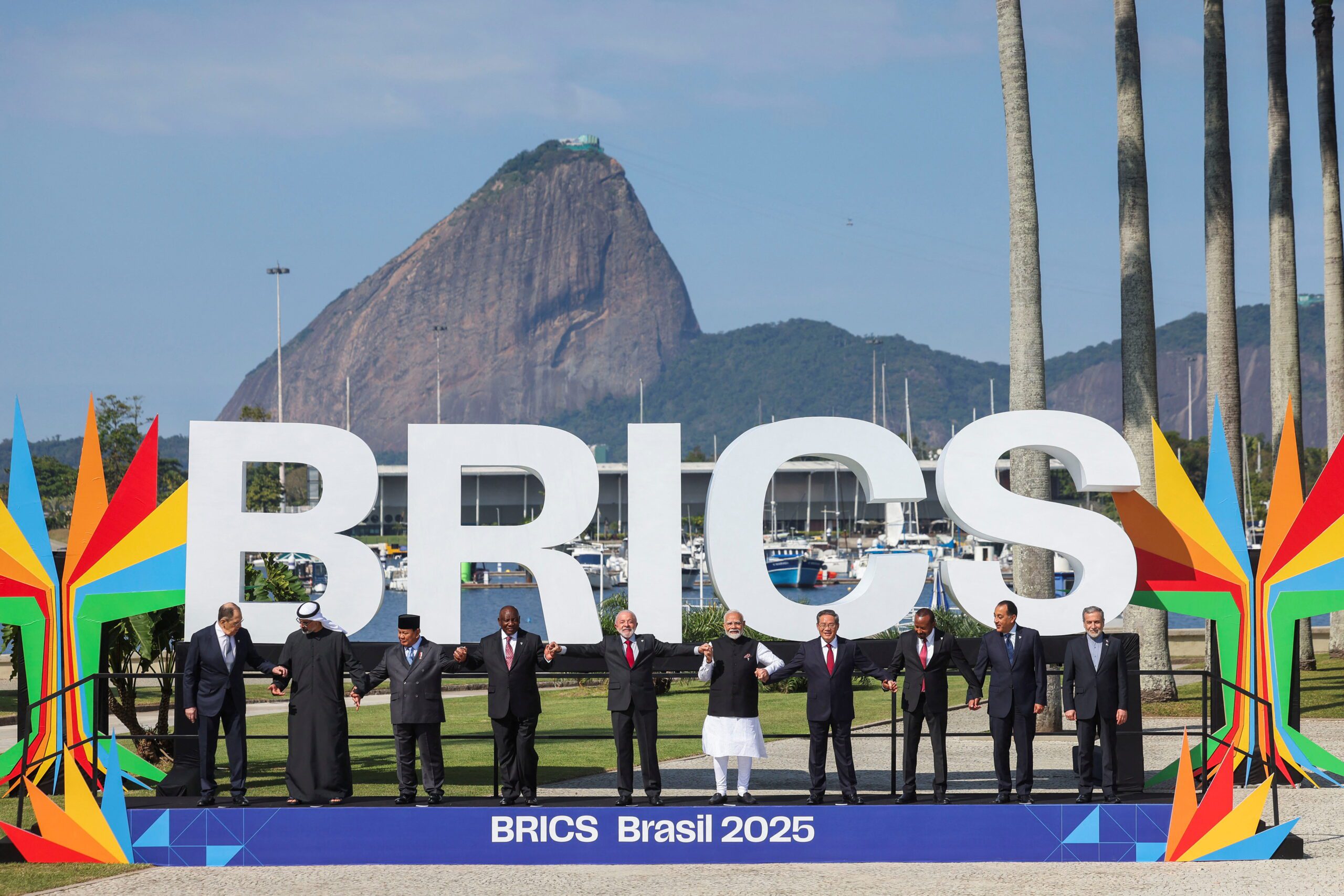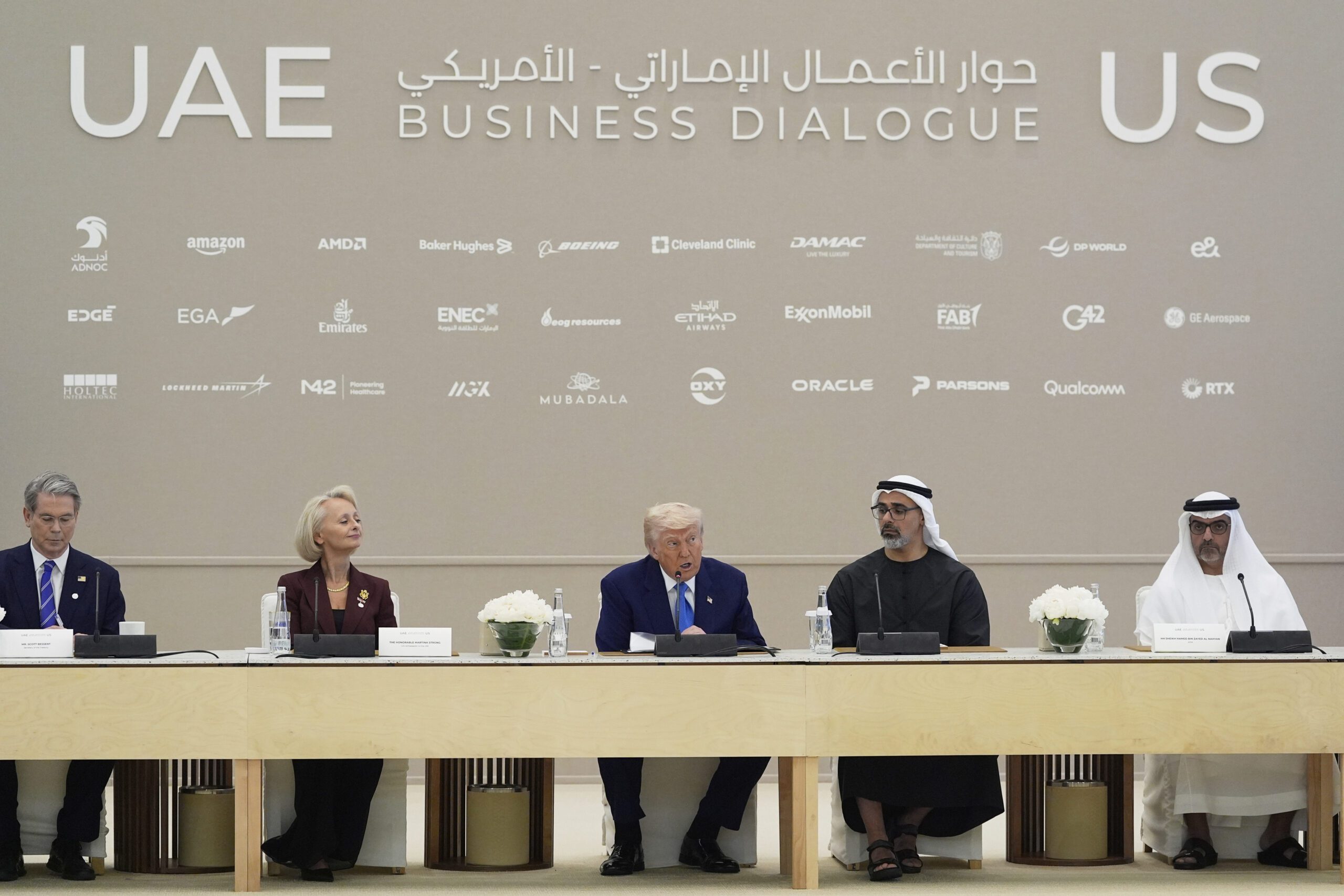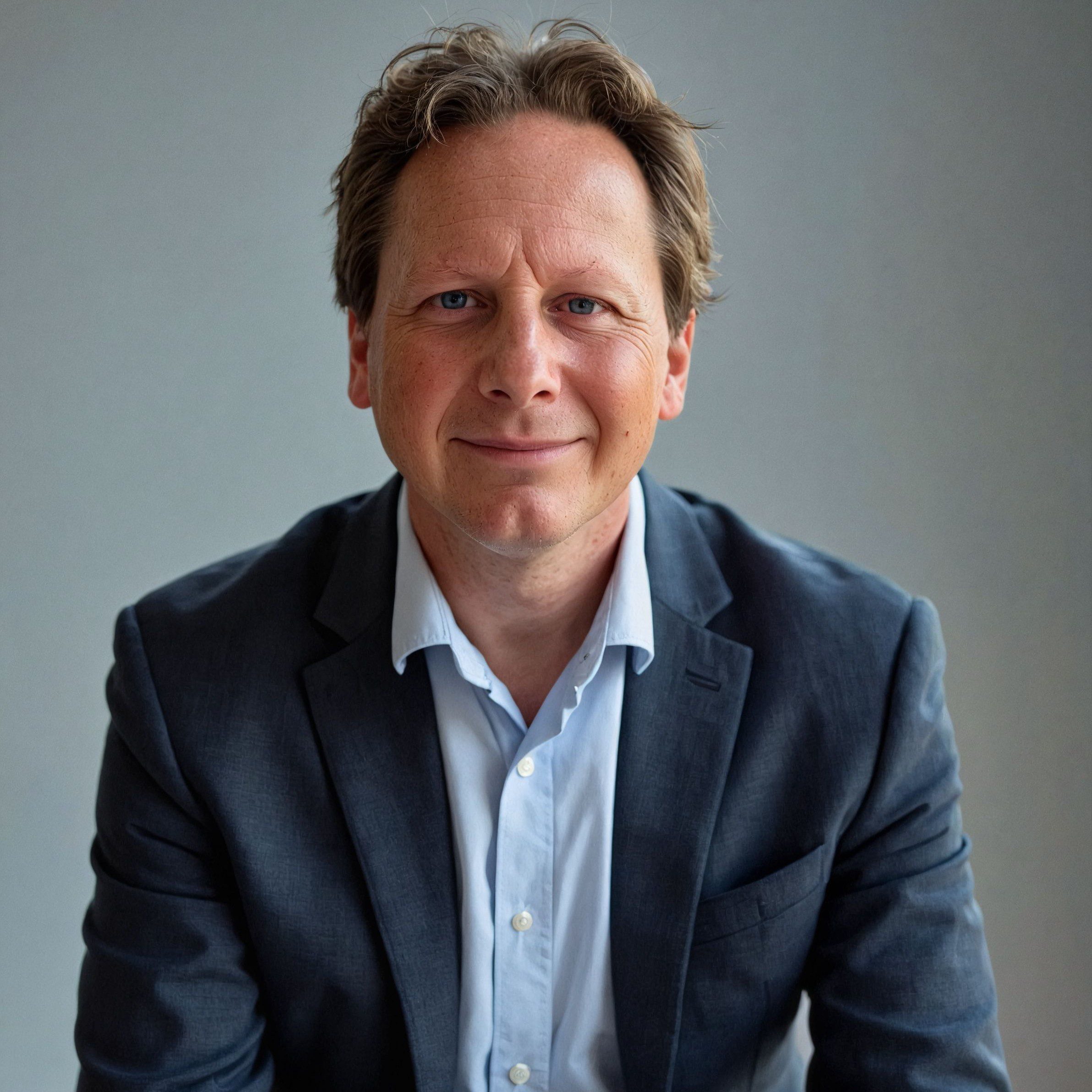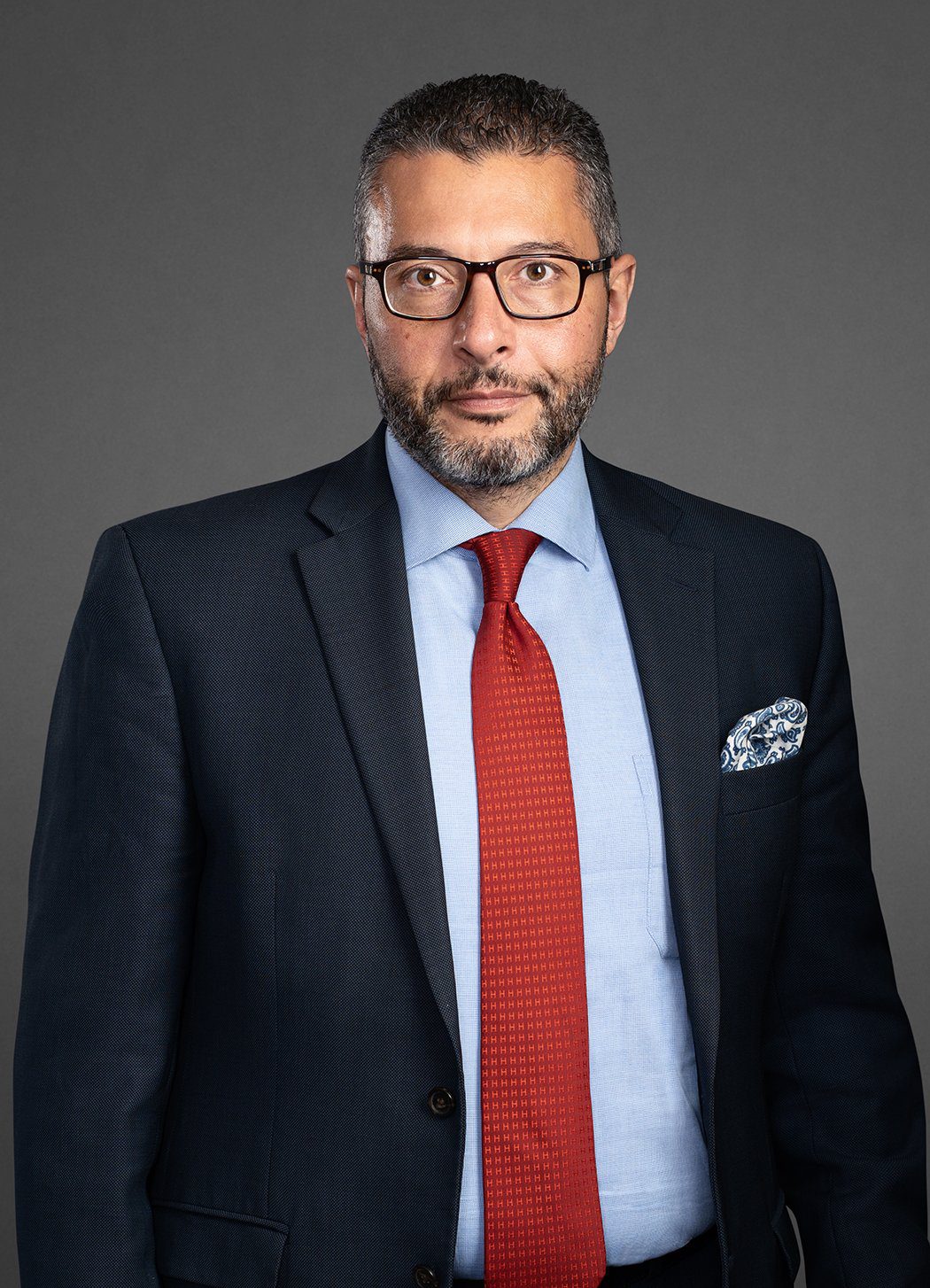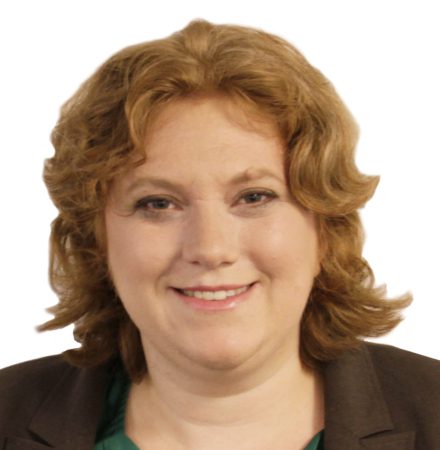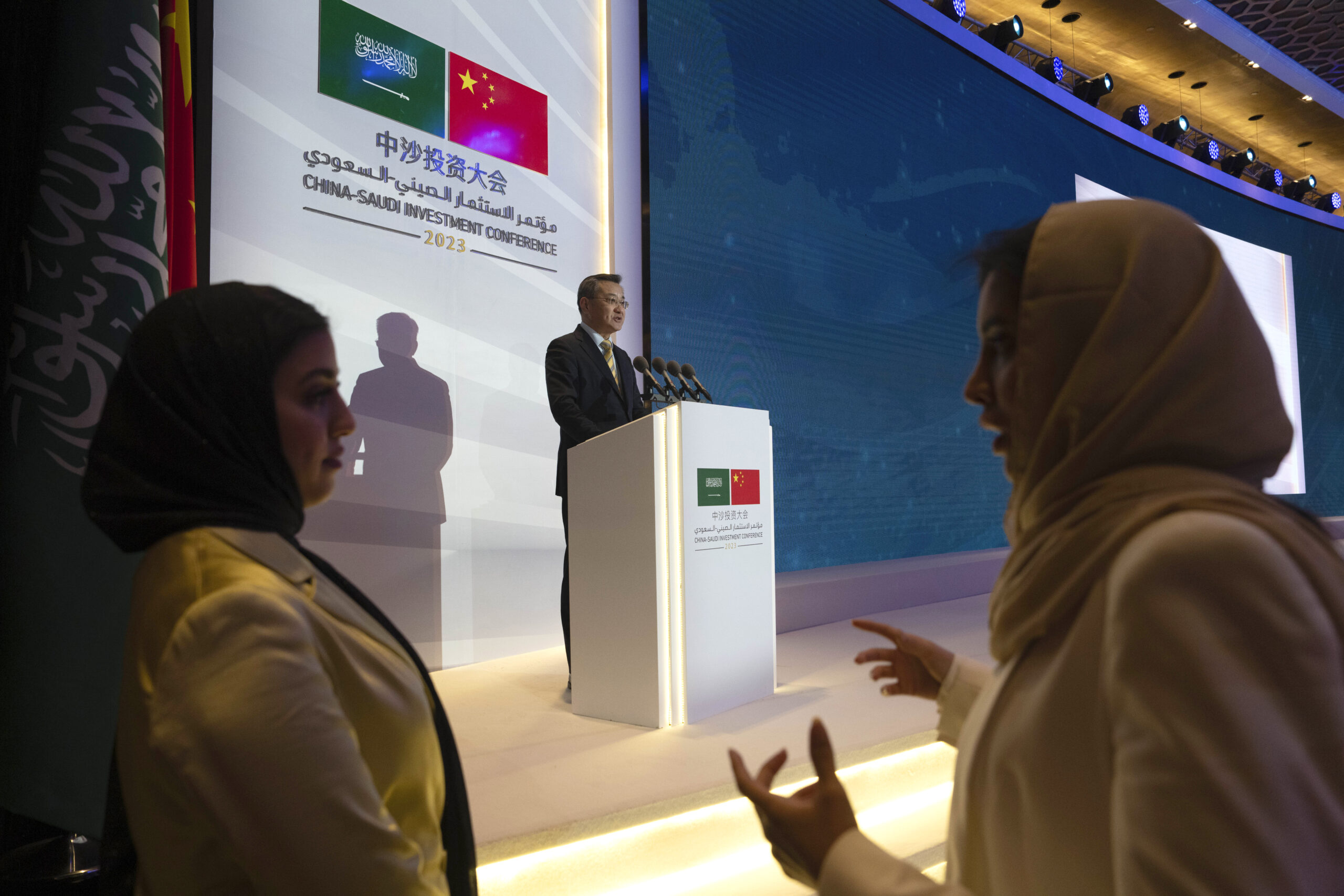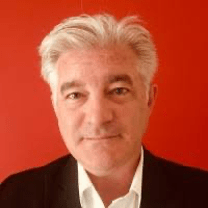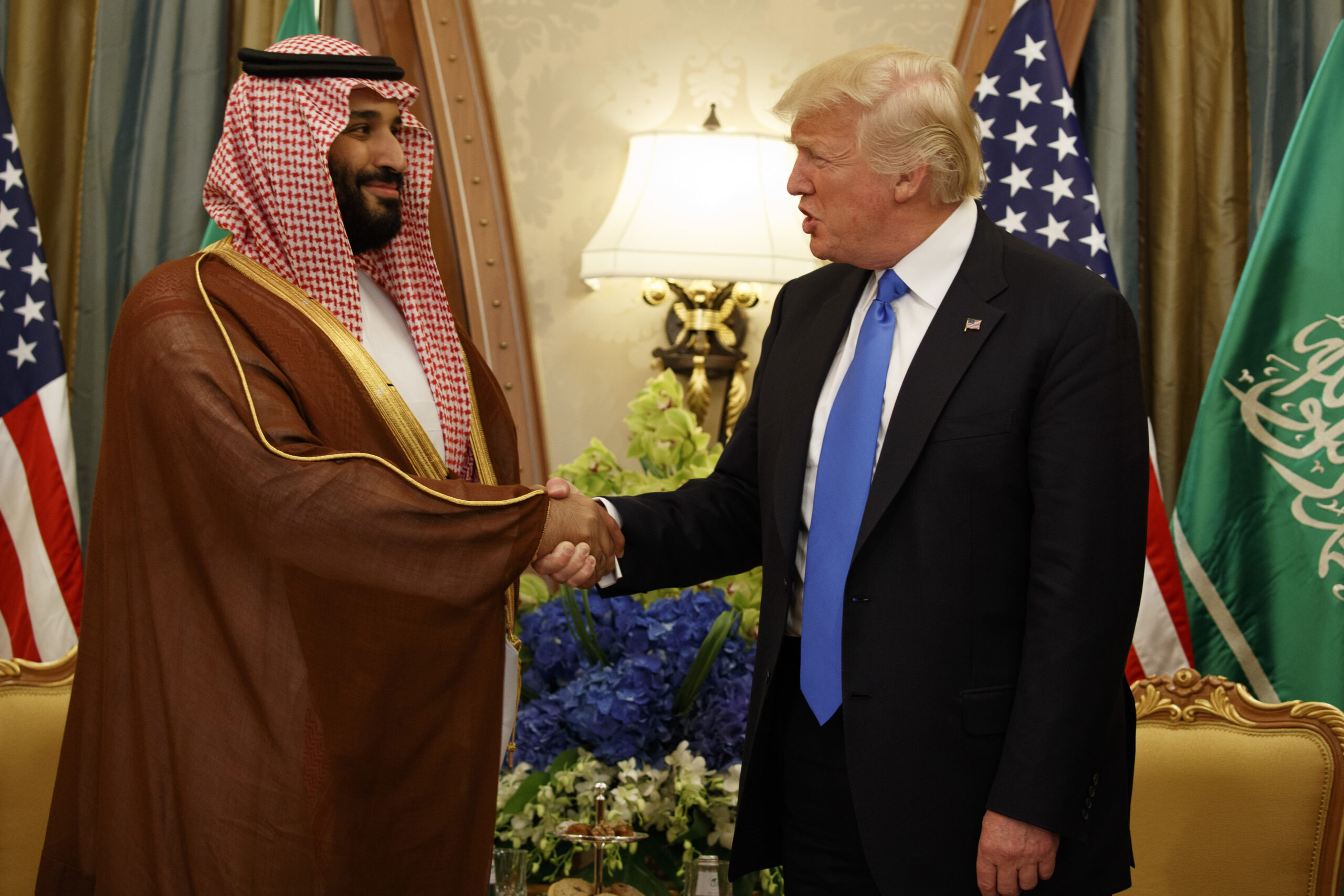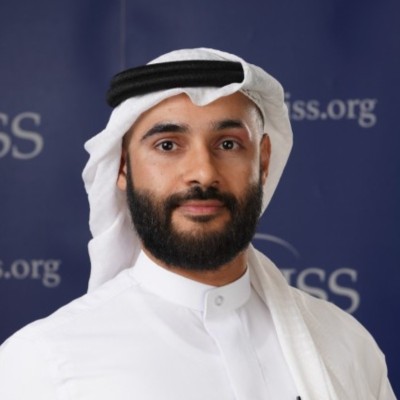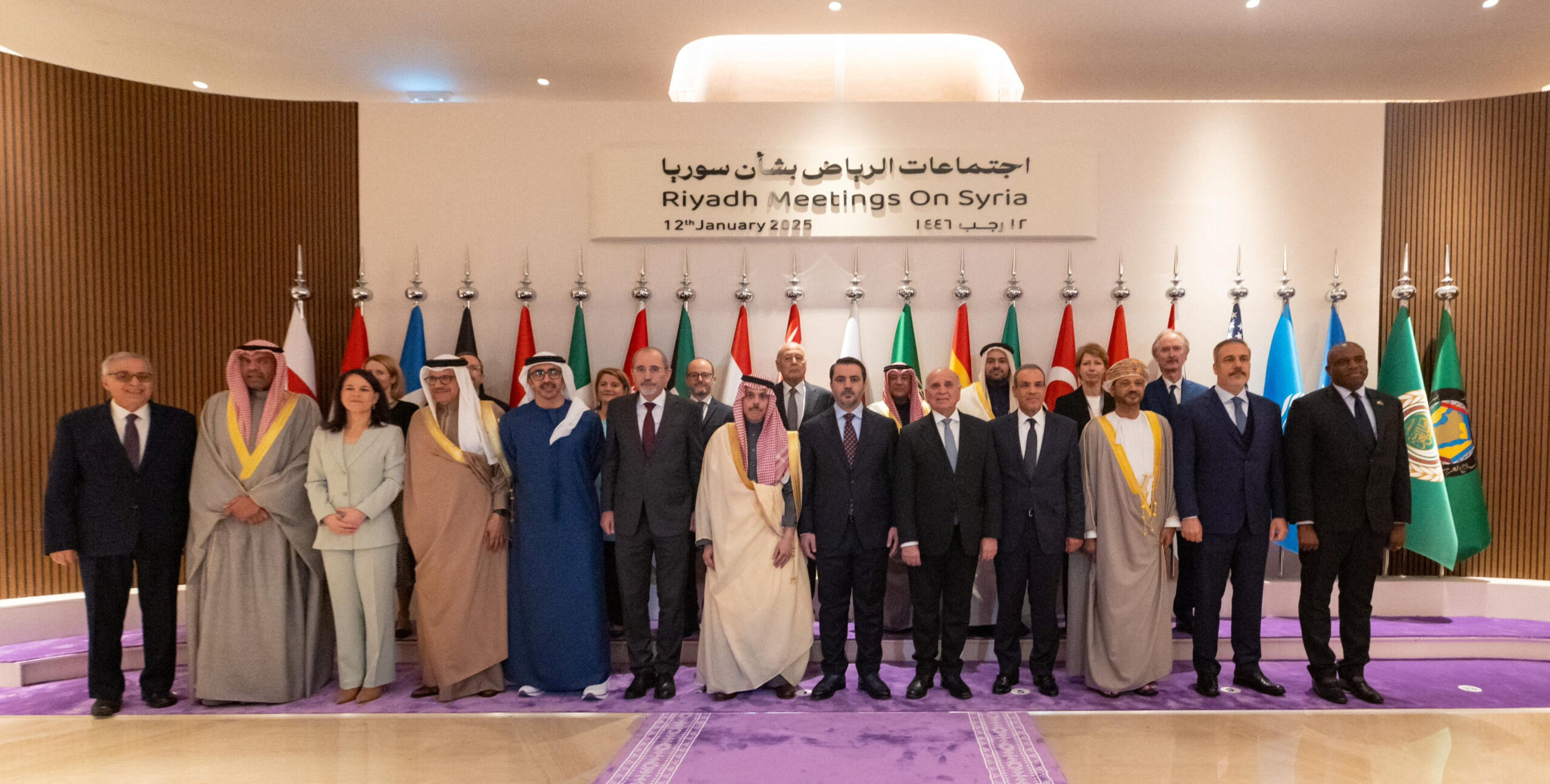Firmer Details Emerge on U.S.-Gulf AI Cooperation
U.S. authorizations for exporting advanced chips to the leading Gulf technology firms is sure to please regional authorities, who will push to broaden and accelerate technology collaboration with the United States.
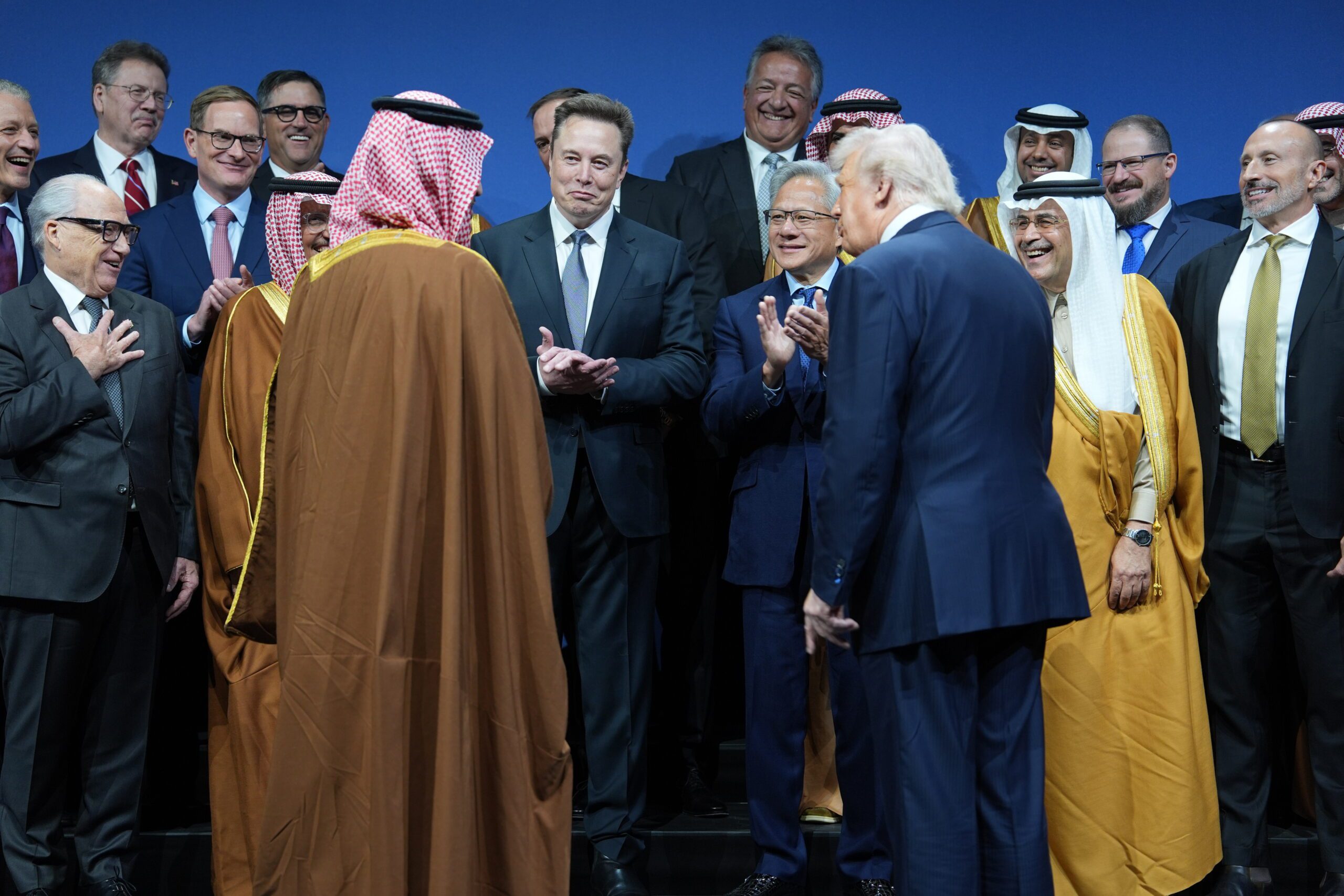
Saudi Crown Prince Mohammed bin Salman concluded a much-anticipated official visit to Washington with a strategic defense agreement, defense sale package, including F-35 fighter jets, major non-NATO ally designation, and U.S.-Saudi Investment Forum. A flurry of announced deals involved nuclear energy, critical minerals, and artificial intelligence. The crown prince committed to investing $1 trillion in the U.S. economy and buying hundreds of U.S. tanks. His first U.S. visit since 2018 appears to have been an overwhelming success for those government and business actors aiming to demonstrate the strong and multifaceted ties between Saudi Arabia and the United States.
One closely watched dimension of the crown prince’s visit involved Saudi-U.S. technology collaboration, especially in the AI domain. Major bilateral AI agreements announced during President Donald J. Trump’s May visit to the Gulf had not progressed as quickly as anticipated. Slow progress was attributed to various complicating factors, such as China’s role in the region and bureaucratic resistance within the U.S. government.
Regional officials and other observers nevertheless remained hopeful that tech collaboration would get back on track. In October, there were signs of movement on Gulf-U.S. AI collaboration – namely reports of U.S. approvals for chip exports to U.S. customers in the United Arab Emirates. However, clear and publicly available details were lacking.
This November visit appears to have jumpstarted AI cooperation. On November 18, the associated White House fact sheet referred to the signing of “a landmark AI Memorandum of Understanding that gives the Kingdom access to world-leading American systems while protecting U.S. technology from foreign influence, ensuring that American innovators will shape the future of global AI.” The following day, the Saudi Minister of Foreign Affairs Prince Faisal bin Farhan and Secretary of State Marco Rubio signed a Strategic Artificial Intelligence Partnership, noting that it “encompasses the supply of advanced semiconductors.”
The lofty wording of the readouts could lead some observers to think that this trip involved more agreements to make agreements than hashing out the nitty-gritty details needed for deeper AI collaboration.
Yet new and concrete details did emerge alongside this visit. The U.S. Commerce Department authorized the exportation of advanced chips to both HUMAIN, the Saudi technology firm backed by the Public Investment Fund, and the UAE’s G42. The two companies secured “approvals to purchase the equivalent of up to 35,000 Nvidia Blackwell chips (GB300s),” provided the companies meet “rigorous security and reporting requirements.”
Such details matter to Gulf governments, which are keen to develop indigenous AI capabilities with the best available chips. While Gulf officials welcomed past developments like the Trump administration’s AI Action Plan, and the UAE indicated a readiness to “fast track” the strategic AI partnership with the United States, chip allotments for their national tech champions remain among Gulf states’ top concerns.
Following the Commerce Department’s announcement on chip approvals for G42 and HUMAIN, the UAE Embassy released a statement saying the move marked “another milestone in the trusted and enduring partnership” with the United States on advanced technology. Indeed, U.S.-UAE tech collaboration is an established, deep, and promising area of ties.
Past official visits between Washington and Abu Dhabi signaled alignment and the scale of future collaboration, but the outcomes were lighter on critical, actionable details. A March trip to Washington by Tahnoun bin Zayed al-Nahyan, UAE national security advisor, “covered prospects for investment in key sectors,” which included AI. Trump’s subsequent May trip to the Gulf resulted in the establishment of the U.S.-UAE AI Acceleration Partnership. Given this November’s developments, the trendline of U.S.-UAE technology cooperation remains positive.
Mid-November was nevertheless a tough time to compete with what many in Washington labeled “Saudi week.” For its part, Saudi Arabia’s HUMAIN made a major commercial splash around the crown prince’s visit. The Saudi AI company announced deals and partnerships with xAI, Luma, AMD, and Cisco. Amazon Web Services and HUMAIN agreed to expand their partnership and work jointly on an “AI Zone” in Riyadh.
Another deal on critical minerals – crucial elements in the supply chains of strategic industries such as AI – also contained concrete details, suggesting that U.S.-Saudi strategic cooperation is accelerating beyond government-to-government rhetoric. As part of a new Critical Minerals Framework, Riyadh and Washington agreed to form a joint venture to build a rare earth refinery in Saudi Arabia. The Pentagon and MP Materials will hold 49% of the joint venture, with the Saudi state-owned mining company Maadan holding the remainder of the new initiative.
To be sure, many more details need ironing out concerning AI cooperation going forward. A major question is whether a precise, longer-term schedule of advanced chip exports was agreed upon behind closed doors. Or did this committed allotment for HUMAIN and G42 serve as a smaller gesture by the United States intended to preserve leverage?
These are still early days. Gulf governments will seek more advanced chips for both U.S. customers and national tech firms. With regional AI ambitions unlikely to slow any time soon, evolving Gulf partnerships with the U.S. government and businesses will remain crucial components of this fast-moving domain.
The views represented herein are the author's or speaker's own and do not necessarily reflect the views of AGSI, its staff, or its board of directors.

